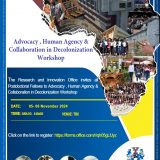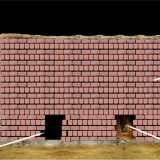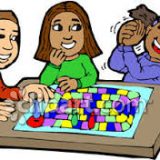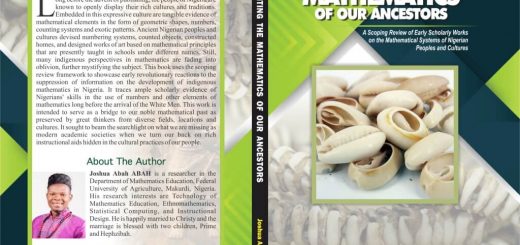The Role of Homes in Children’s Mathematics Learning
![]()
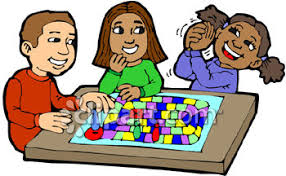
Home Role in Math Learning
An area that requires active participation of the home is the mathematics education of children. Mathematics as a subject is essential for children to appreciate the beauty of nature, think logically and make sound judgment . The home should show some concern and willingness to act in order to correct accumulated myths about the difficulty of mathematics as a school subject and avoid the influence of faulty foundations in mathematics that may impede children’s future development. With adequate support from the home, pupils can be encouraged to master the automatic procedures, skillful manipulations and the sense of logic mathematics is known for.
One of the reasons the whole world is attracted to the educational system of Finland is the sense of responsibility shared by all stakeholders in the upbringing of children. One of the most striking facts about Finnish schools is that their students have fewer hours of instruction, observe long summer holidays, thereby apportioning bigger roles to the home. The Finnish system adopts a holistic approach to education with parents wanting a family-friendly approach that also holds high respect for teachers. The Finnish school system is inseparable from the culture which it serves. In this sense, children’s education is continuous based on the full involvement of the home and the outcome is a fine balance between quantity and quality.
Homes and families have the direct and lasting impact on children’s mathematics learning and development of social competence. When parents are involved, pupils achieve more, exhibit more positive attitudes and behaviour, and feel more comfortable in new settings. One of the best things parents can do to improve their children’s mathematics literacy is to regularly expose them to practical applications of mathematics at home which can help them develop mathematical reasoning. The home can help pupils merge what they observe, discover and learn outside the classroom with the theoretical and abstract mathematics they learn in school. Such practical mathematics is readily available in the estimation of resources at home, the use of money for daily expenditure, available games in the community and even in the cultural practices of the society.
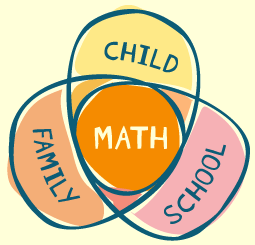
Math Learning needs the Child, the Family, and the School
Apart from normal activities in the home, parents and guardians can work with children’s school teachers to facilitate their children’s mathematics learning. Two reasons why parents-teachers collaborations are likely to be the most profitable. First, children generally want to please both their parents and their teachers. If they see that mathematics is important to both their parents and their teachers, they will consider it important for themselves too. Second, extending mathematical concepts from the classroom to the home will establish the idea that mathematics is not just a school subject, but an everyday subject that makes life more interesting and understandable. Teachers can provide assistance in:
- Setting up a system of home study;
- Helping parents understand the sequencing of mathematical skill development;
- Suggesting materials and activities that are entertaining and suitable for their child’s level and which can be done in a reasonable amount of time;
- Providing clear guidelines on how to use materials;
- Giving feedback on the successes and failures of home activities; and
- Knowing when to stop working with a child on an activity so that a good working relationship is maintained.
 Generally, emphasis on the role of the home in mathematics education of children dwells on the need for parents and guardians to give more time to children, providing them a supportive environment at home, encouraging their mathematics learning and discussing with them about their problems in the subject. Parents are to keep watch on the children’s activities, help improve their study habits and maintain a positive disposition while advising them. Even for parents who themselves found mathematics difficult, there should be a decisive effort to set aside such distaste, avoid talking negatively about the subject, and seek collaboration to instill the love of mathematics in their children.
Generally, emphasis on the role of the home in mathematics education of children dwells on the need for parents and guardians to give more time to children, providing them a supportive environment at home, encouraging their mathematics learning and discussing with them about their problems in the subject. Parents are to keep watch on the children’s activities, help improve their study habits and maintain a positive disposition while advising them. Even for parents who themselves found mathematics difficult, there should be a decisive effort to set aside such distaste, avoid talking negatively about the subject, and seek collaboration to instill the love of mathematics in their children.
The outcome of a recent study reveals a systematic pattern of parents’ involvement in the mathematics education of their children, particularly at the Middle Basic level in North Bank suburb of Makurdi, Nigeria. Basically, the results affirm that parents and homes are adequately involved the mathematics education of Basic 5 pupils in the study area. However, parents of pupils in both the high-achieving and low-achieving categories fare less in specific areas of supporting pupils who are having difficulties in school mathematics, taking their children to the public library and providing activities that encourage the development of their children’s mathematics skills. Both categories of parents are not aware of the approaches used to teach mathematics in their children’s school, suggesting a gap in the school-home relationship of pupil’s mathematics education. These key findings reveal shortcomings on the part of the parents to turn everyday occurrences and household tasks into lessons that not only help pupils with their mathematical reasoning skills and sense of applied mathematics, but prepare them for adulthood. The observed gap in the school-home relationship with respect to the teaching and learning of mathematics may be due to schools and parents having a different understanding of what home involvement should look like. Earlier empirical research works from Nigeria reveal that apathy exists on the side of parents, low expectations exist on the side of the teachers, and an organizational structure facilitating parent-school interaction is lacking. One of the best ways to structure this relationship is through involving parents in their children’s home work and employing targeted parent involvement to solve a particular problem – such as poor attendance or behaviour at school. In this regard, Basic schools can subscribe to the under-listed responsibilities in creating a partnership that can have a significant impact on pupils’ achievement. Basic schools should:
- Recognize that all parents, regardless of income, education or cultural background, are involved in their children’s learning and want their children to do well in mathematics;
- Survey parents and the schools’ teachers to understand their perspective on parent involvement. Investigate how parents want to be involved and how teachers want parents to be involved.
- Work to create a common understanding of how parents could best support their child’s mathematics education and how teachers could communicate with parents. This might be accomplished through discussions, flyers, meetings or other strategies.
- Identify barriers to achievement within schools. Can parents help address these challenges? If so, how?
- Give teachers training on how to develop homework assignments that involve parents.
- Regularly involve parents in their child’s homework and report on the results of doing so.
The study has attempted to verify the relationship between home involvement and mathematics achievement of pupils across both low and high achieving pupil – categories in North Bank suburb of Makurdi, Benue State, Nigeria. The survey of 73 Basic 5 pupils along with their parents across three (3) Middle Basic Schools in North Bank suburb establishes a weak positive relationship between home involvement and mathematics achievement that is homogenous to both achievement categories. Further interaction with the pupils reveals that apart from parents, other members of the extended family, friends and neigbours play vital roles in the mathematics education of children. The study also revealed that among the five key parental roles, parents of pupils in North Bank suburb have shortcomings as mathematics resources providers. This implies that they often default in providing a nice learning environment at home for their children to study mathematics. These homes lack variety of games, puzzles and activities that encourage the development of children’s mathematics skills. They also failed in buying mathematics related books for the children and in taking their wards to the library.
Views: 362

